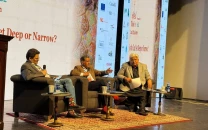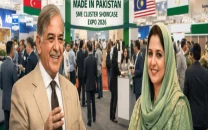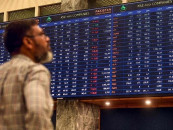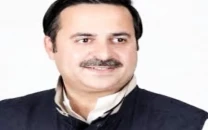Businesses call IMF’s conditions ‘unfair’
FPCCI urges govt to consult with stakeholders vis-à-vis federal budget for 2023-24

The federal government seems to have abandoned its struggle to secure the last tranche of the loan from the International Monetary Fund (IMF) due to political pressure from opposition leader Imran Khan.
Speaking to The Express Tribune, Vice President of Pakistan Business Forum (PBF), Ahmad Jawad, suggested that the government is instead likely to provide relief to the general public in order to manage political tensions. “After meeting all of the conditions set by the IMF, the government has managed to pull the economy out of crisis mode and can now afford to forego the deal,” he explained.
The government has implemented several new taxes and increased existing ones in accordance with IMF instructions, including the general sales tax, as well as hiking electricity and gas prices. However, Jawad suggested that the government is now considering withdrawing the petroleum levy and may also intervene to appreciate the rupee against the dollar, which could decrease inflation for at least a few months.
“The government’s priority is to present a better budget without imposing any new taxes to appease the public and mitigate the momentum that Khan has created,” he said. China has also expressed interest in helping Pakistan during this difficult time.
“Looking ahead, it is likely that the new government, to be elected soon, will deal with the IMF. The IMF has also expressed interest in working with a new government that has a proper mandate. Despite the challenges facing Pakistan’s economy, there are hopeful signs that progress can be made with the right policies and cooperation from international partners,” said Jawad.
However, the President of the Federation of Pakistan Chambers of Commerce and Industry (FPCCI), Irfan Iqbal Sheikh, expressed his concerns that the government and its economic team have not yet started the consultative process with the business community in general, and the FPCCI in particular. With less than a month left to the announcement of the budget, due to be presented on June 9, he invited Finance Minister Ishaq Dar to meet with the leaders of Pakistan’s business, industry and trade community to take stock of their proposals vis-à-vis the federal budget for 2023-24 and also listen to their issues, apprehensions and recommended solutions.
Sheikh explained that the FPCCI wants to present and discuss its proposals on industrial, trade, shipping and transportation; taxation, Small & Medium sized Enterprises, agriculture, IT and ITeS; monetary and fiscal policies with the government. “The budget-making process presents an opportunity for meaningful course correction based on ground realities, regional and global business environments, and national interest,” he said.
The FPCCI chief also expressed his shock that the IMF has raised the external funding requirement from $6 billion to $8 billion, sensing that friendly countries have promised up to $5 billion in funding or roll-overs to Pakistan. He questioned the IMF’s decision to suddenly raise the external funding requirement for the next seven months, despite the fact that the stalled EFF program was valid only until June 2023.
“This is unfair and unethical. The international community must take notice,” he added.
He emphasised that the government’s economic and financial team must now be crystal clear that an IMF program is not going to materialise before the upcoming budget, which is only three weeks away.
“We, at FPCCI, have been observing that the government was making its budget on the basis of a resumed IMF program; but, given the fluid circumstances, it now has to make major adjustments in the budget within the short period three weeks,” he said.
Sheikh maintained that the only solution that can steer Pakistan out of the crisis is through an indigenous solution based on simplification and broadening of the tax base, targeted subsidies to the five export-oriented sectors – making it competitive through regionally competitive energy tariff (RCET) mechanism, encouragement of remittances by bridging the gap between banking channels and open markets, incentivising industrialisation, export substitution, and revival of sick units. He further suggested that all economic policies should be made in consultation with the real stakeholders of the economy, namely the business, industry, and trade community of Pakistan.
Published in The Express Tribune, May 14th, 2023.
Like Business on Facebook, follow @TribuneBiz on Twitter to stay informed and join in the conversation.



















COMMENTS
Comments are moderated and generally will be posted if they are on-topic and not abusive.
For more information, please see our Comments FAQ